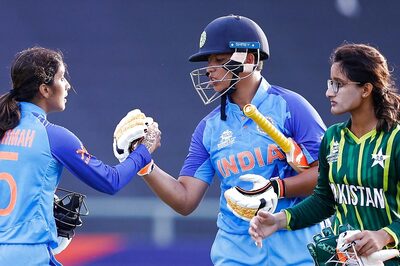
views
New Delhi: Call it a twist of fate. None of the two Attorney Generals appointed by the Narendra Modi government could win their first big cases.
Its first AG Mukul Rohatgi lost the National Judicial Appointments Commission (NJAC) case whereas his successor, K K Venugopal has now tasted a major defeat in the Right to Privacy case.
When Rohatgi took over as AG in June 2014, the controversy surrounding the Modi government's endeavour to change the way judges are appointed in India had reached the Supreme Court.
A five-judge bench led by Justice J S Khehar heard the matter extensively and quite patiently too as Rohatgi defended the NJAC tooth and nail during the long summer of 2015.
The law officer was at his arguemtnaitve and aggressive best when he made statements such as the appointments of judges in the country had become a matter of "you scratch my back and I will scratch yours."
Rohatgi went on to even make comments about individual judges to support his argument that Collegium has produced some judges who failed to make the cut.
Despite all his force and craft, Rohatgi lost the case for the government, which was compelled to eat its own words on Collegium system.
After the NJAC was quashed, the government had to okay the appointments made through the same Collegium system, which its AG had emphatically declared to be "dead and buried forever" for the government.
For the new AG, K K Venugopal, Right to Privacy was the first Constitution Bench matter that he argued on behalf of the government.
Known for his mild voice and strong arguments, Venugopal left no stone unturned to push across the point that privacy was such an amorphous concept that the apex court will create a complex situation by recongnising it as a fundamental right.
The veteran lawyer even went on to state that privacy was an "elitist" concept and that in a country like India with millions of people living below poverty line, majority cared more about food and shelter than privacy.
The new AG's arguments were sharply rejected by the nine-judge bench in its unanimous verdict. “A large number of poor people that Shri Venugopal talks about are persons who in today’s completely different and changed world have cell phones, and would come forward to press the fundamental right of privacy, both against the Government and against other private individuals,” emphasized Justice Rohinton F Nariman in his concurring judgment.
Venugopal's submissions on uncertain definition of privacy was also dismissed by Justice J Chelameswar, who held that "definitional uncertainty is no reason to not recognize the existence of the right of privacy".
Incidentally, the Modi government invested major political capital in these cases and the legal beating it got in the two matters despite both argued by different AGs at different points of time connote the supremacy of the judicial system and that good lawyers perhaps cannot save otherwise bad cases.



















Comments
0 comment